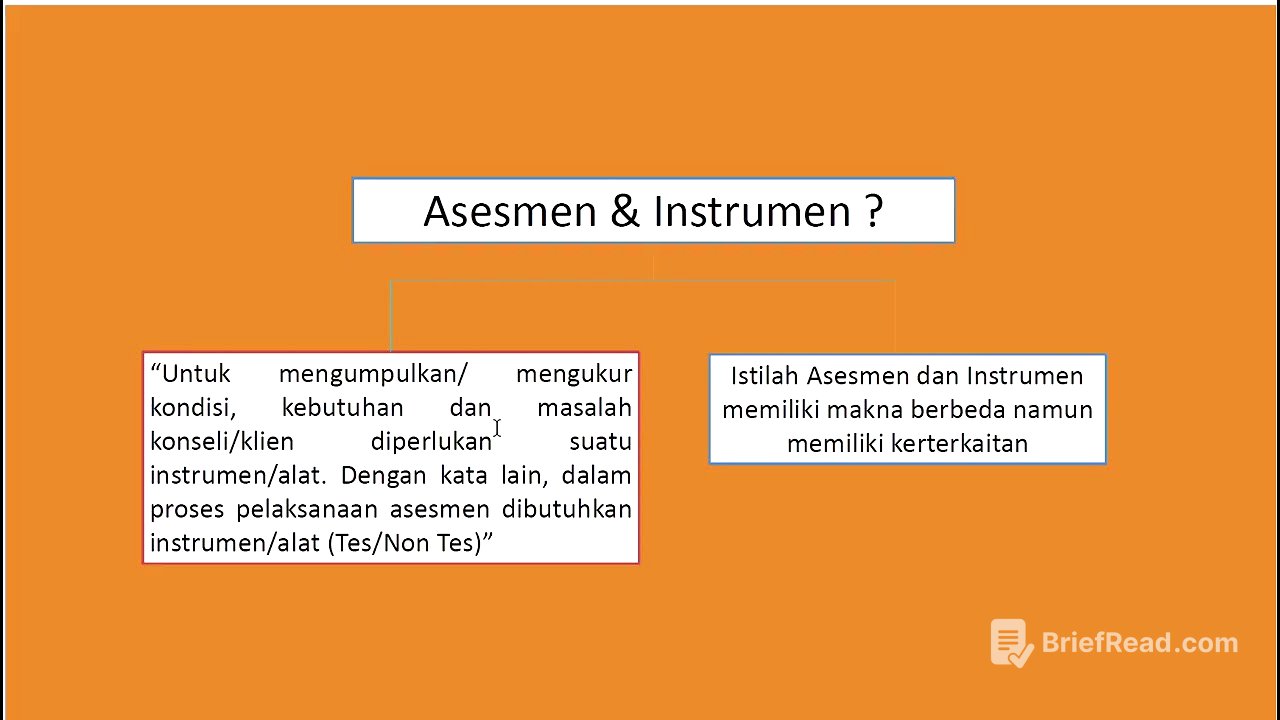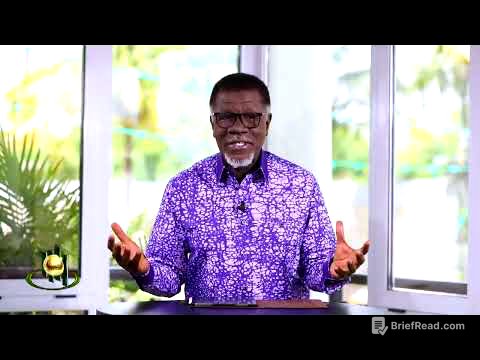TLDR;
This video introduces the non-test instrumentation course, outlining the lecture contract, the importance of assessment in guidance and counseling, and the basic concepts of assessment. It emphasizes the necessity of understanding assessment techniques for counselors to effectively support students' development and address their needs.
- Course introduction and lecture contract overview.
- Importance of assessment in guidance and counseling.
- Discussion of assessment techniques and their application.
Lecture Contract and Course Introduction [0:00]
The lecture begins by outlining the lecture contract, emphasizing the importance of student registration in the KRS and LMS systems to ensure they receive grades. Attendance is mandatory, with a minimum requirement of 80%, allowing for a maximum of three absences. Assignments, both individual and group, must be submitted on time, and students are expected to actively participate in class. Exams (UTS and UAS) are crucial for passing the course. The lecturer also directs students to download and study the RPS (Rencana Pembelajaran Semester) on LMS.
The Urgency of Assessment in Guidance and Counseling [3:19]
The discussion transitions to the basic concept of assessment in guidance and counseling, referencing the Ministry of National Education regulation number 27 of 2008, which outlines the academic qualifications and competencies required of counselors. Professional competency, particularly the mastery of assessment concepts and practices, is highlighted as essential for understanding the needs and problems of students. This competency includes understanding the nature of assessment, selecting appropriate techniques (tests and non-tests), and developing assessment instruments.
Key Aspects and Purpose of Assessment [6:45]
The urgency of implementing assessments is linked to the counselor's role in providing guidance and counseling services aimed at optimizing student development. Assessments are necessary to understand students' conditions and needs, considering both individual and environmental factors. This data informs the creation of effective guidance programs. Assessment involves collecting data using instruments (tests and non-tests) to gain insights into students' situations.
Assessment vs. Instrumentation and Definition of Assessment [8:55]
Assessment is defined as the process of collecting, analyzing, and interpreting data from students and their environment, while instrumentation refers to the tools or instruments used in this process. The nature of assessment lies in gaining an overview of students' conditions, needs, and problems, which then informs the design of guidance and counseling programs tailored to their needs. The goal of assessment is to understand students' potential and weaknesses to provide appropriate interventions.
Timing, Function, and Techniques of Assessment [12:03]
Assessment can be conducted before, during, and after counseling to identify needs, deepen understanding of problems, and evaluate the success of interventions. Its functions include making psychological diagnoses, understanding potential strengths, and mapping problems. Assessment techniques include both tests (e.g., intelligence, talent) and non-tests (e.g., interviews, questionnaires). While BK teachers can conduct non-test assessments, certified professionals or psychologists should administer test assessments. The data collected is used to understand the counselee's conditions, needs, and problems, guiding effective guidance and counseling practices.









